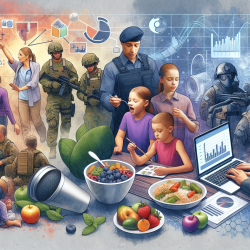In an ever-evolving world where natural and man-made disasters are becoming increasingly common, the role of forensic nurses is more critical than ever. The recent scoping review titled "Forensic Nursing competencies in disasters situations: scoping review" sheds light on the essential skills needed for forensic nurses to effectively respond to disaster situations. This blog explores these competencies and encourages practitioners to integrate these insights into their training and practice.
The Role of Forensic Nurses in Disasters
Forensic nurses play a pivotal role in disaster management by bridging healthcare and legal systems. They are involved in all phases of disaster response: pre-incident, incident, and post-incident. Their work includes direct care, psycho-emotional support, trace evidence collection, and maintaining the chain of custody.
Key Competencies Mapped
The review identified 24 critical competencies for forensic nurses in disaster scenarios. These include:
- Training and Resource Management: Continuous education and efficient use of resources are vital.
- Link with Justice Services: Collaboration with legal entities ensures proper handling of evidence.
- Psycho-emotional Care: Providing emotional support to victims and families is crucial.
- Collection and Preservation of Evidence: Accurate documentation and preservation of evidence are essential for legal processes.
- Epidemiological Surveillance: Monitoring health trends post-disaster helps in managing public health responses.
Integrating Competencies into Training
The development of these competencies should be incorporated into forensic nursing training programs. This integration will enhance the preparedness of nurses to respond effectively to disasters, ultimately leading to better outcomes for affected individuals and communities.
Practical Steps for Practitioners
- Pursue Continued Education: Engage in workshops and courses focused on disaster response and forensic nursing.
- Network with Legal Professionals: Build relationships with justice services to understand legal requirements better.
- Participate in Simulations: Engage in disaster drills to practice skills in a controlled environment.
- Stay Informed: Keep up-to-date with the latest research and developments in forensic nursing through journals and conferences.
The Need for Further Research
The scoping review highlights that while significant progress has been made, there is still a need for more research to fill existing gaps. Practitioners are encouraged to contribute to this growing body of knowledge by conducting studies or participating in collaborative research projects.
By advancing our understanding of forensic nursing competencies in disasters, we can improve training programs and ensure that nurses are equipped with the necessary skills to provide comprehensive care during crises.
To read the original research paper, please follow this link: Forensic Nursing competencies in disasters situations: scoping review.










